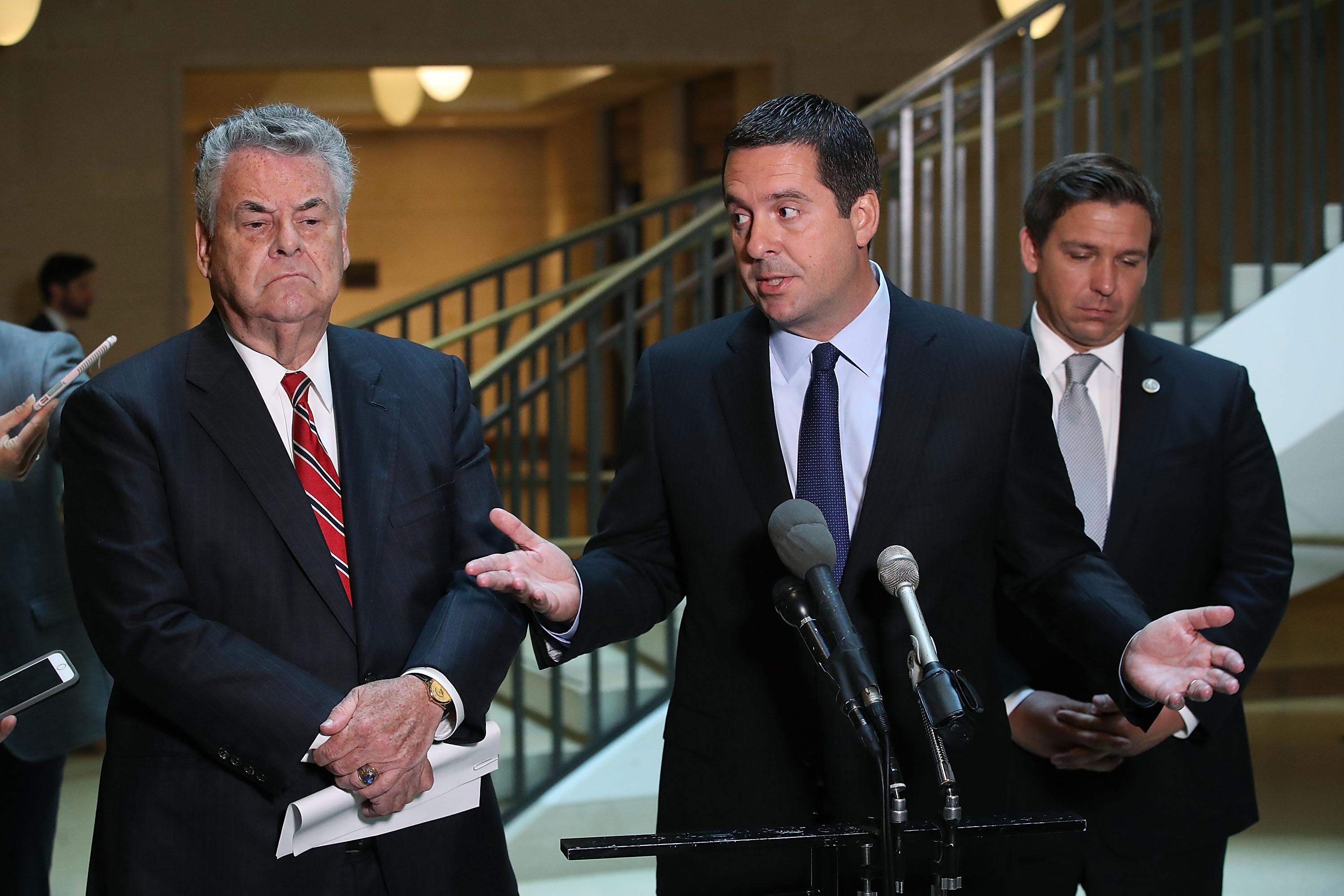The conservative Twittersphere has, for the past week, been dominated by an inescapable hashtag: #releasethememo. It’s a social media campaign that has enlisted Twitter randoms, figures from Trumpworld, conservative pundits, alt-right voices, and a slew of Republican congressmen alike. “Americans deserve to know the contents of the memo,” Donald Trump Jr. tweeted Friday. “Democrats & deep state govt officials are doing everything they can to protect those within the government who used their positions of influence to target those they disagree with politically.”
Tweets like this have been joined in the conservative press with wild-eyed proclamations. On Thursday night, Sean Hannity announced that the abuses detailed in the memo amount to a scandal “worse than Watergate.” It’s as-yet unclear how highly this particular controversy ranks among the other allegedly Watergate-dwarfing imbroglios claimed by the right—below Benghazi and between Fast & Furious and the Clinton emails, perhaps?—but we can rest assured that it’s up there.
The memo is a four-page document authored by Rep. Devin Nunes of California and House Republican aides accusing law enforcement officials in the Obama administration of improperly procuring a Foreign Intelligence Surveillance warrant for Carter Page using information obtained, in part, by investigator Christopher Steele. The document charges that these officials were required to, but did not, disclose that Steele’s research had been funded by Democrats in their warrant application. Riveting stuff.
If you’re wondering how anyone yelling about this happens to have access to the details of an allegedly suppressed and highly sensitive document, it’s because some of those details have already been shared with, among other parties, the New York Times. Perhaps dozens of members of the House were authorized to access the memo itself in a special viewing room after an intelligence committee vote last week. If the memo did, in fact, contain the evidence of unprecedented malfeasance Republicans are claiming it does, its contents would presumably have leaked in more detail by now. Absent better leaks, the American people will have to wait, with undoubtedly labored and bated breath, the 19 congressional working days it will evidently take the memo to be processed and released to the public, should both Nunes and President Trump sign off. As Glenn Greenwald pointed out at the Intercept, Trump has the authority to declassify the memo and any related intelligence immediately, should he choose to, and House Republicans could put the memo to a vote on an accelerated timeframe as well. The fact that these options don’t seem to be on the table is telling.
The point of this charade, obviously, is to cast further doubt on the impartiality of the Justice Department and the FBI as Robert Mueller’s Russia investigation continues. More and more Republicans have joined in the effort to undermine the investigation over the past few months and early January saw House Speaker Paul Ryan and other mainstream Republicans like Chuck Grassley and Lindsey Graham backing probes on Christopher Steele and his dossier. It’s thus unclear whether the memo’s eventual release will be accompanied by the actual documents that form the basis of the accusations leveled in it, allowing the public to judge the veracity of Nunes’ and the Republicans’ claims for themselves.
Suspicions that those claims are laughably weak should be heightened by the fact that the right is already moving on to another alleged scandal. On Tuesday morning, President Trump tweeted about missing texts between FBI agent Peter Strzok and Mueller attorney Lisa Page, who, as revealed late last year, exchanged anti-Trump messages that led to Strzok’s dismissal from Mueller’s investigative team. “In one of the biggest stories in a long time, the FBI now says it is missing five months worth of lovers Strzok-Page texts, perhaps 50,000, and all in prime time,” Trump wrote. “Wow!” This characterization can be considered a bit of restraint on Trump’s part given that some on the right are also calling this matter, you guessed it, “worse than Watergate.” Contrary to Trump’s claim, it’s unknown how many messages between the two are actually missing—about 50,000 non-missing messages, in total, were on the Justice Department’s servers.
Among those non-missing messages are quotes and passages Republicans have delighted in magnifying and stripping from all potentially illuminating context. One of the latest in the newest batch of messages released by the Justice Department to Congress on Friday is a comment made the day after the election. “[T]here is a text exchange between these two FBI agents, these supposed to be fact-centric FBI agents saying, ‘Perhaps this is the first meeting of the secret society,’” House Oversight Committee Chairman Trey Gowdy said in an appearance on Fox News Monday. “So I’m going to want to know what secret society you are talking about, because you’re supposed to be investigating objectively the person who just won the Electoral College.” The conservative site the Daily Caller reported that their attempts to obtain a copy of this exchange from House Republicans for context were “unsuccessful.”
We can expect more of these shenanigans as the Mueller investigation heads for the finish, although additional grandstanding from Republicans at this point is probably overkill. The Republican base is already well-primed to dismiss his findings out of hand.
